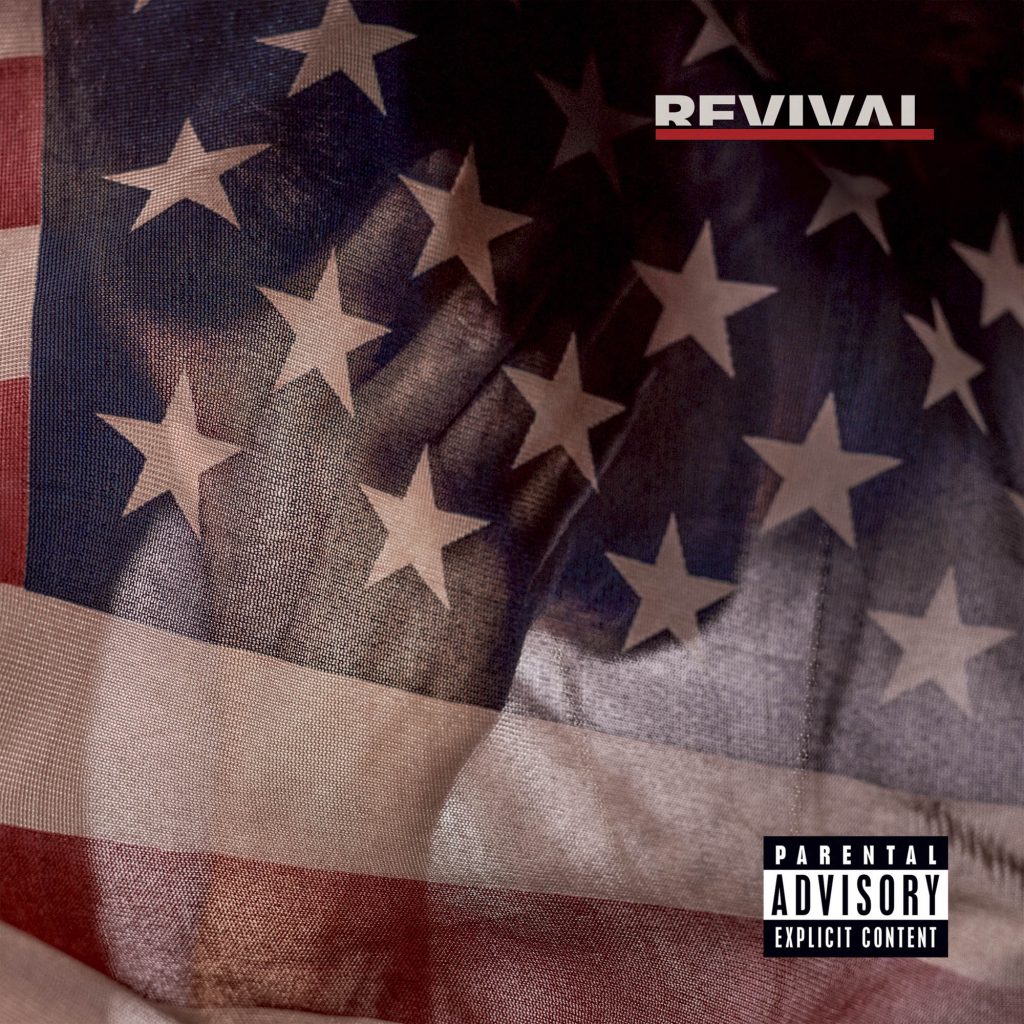
On Dec. 15, Marshall Mathers — better known as Eminem — released his first full-length album in four years. With superstar features and loaded verses against President Donald Trump, Eminem tries a lot of things in “Revival” — and, for the most part, he succeeds.
“Revival” uses the old-school style that made Eminem an icon, contextualizing it in the social and political climate of 2017. To call “Revival” politically charged is an understatement — this album is a direct response to the state of the country, with the majority of the songs on the record addressing sexual assault, racism, police brutality or white privilege.
While the album’s first single — and its first song — “Walk on Water,” featuring Beyoncé, was published as a video on Eminem’s YouTube page on Nov. 10, a second, equally buzzworthy single for the album was released on Dec. 8, one week before “Revival” dropped. “Untouchable” is a political anthem: on it, Mathers expresses his anger and embarrassment as a white American male, and it’s almost the theme song for the album.
“Untouchable” references Colin Kaepernick’s protest about the treatment of minorities in the United States, white fragility and the Black Lives Matter movement. The chorus begins with “White boy, white boy, you’re a rock star,” and the track samples Cheech and Chong’s 1974 song “Earache My Eye” after each Eminem line. The song jumps back and forth between Eminem acting as a racist white cop, and as a third party chanting about what it’s like for a “white boy” who gets to live with such privilege. The beat changes with each perspective shift.
“Untouchable” is somewhat self-aware, and that’s important in a time when white male rappers like Post Malone exhibit racial appropriation and a clear lack of sociopolitical understanding in their songs. However, it may not be self-aware enough. There’s a tone to this song that places Eminem “above” other white men — as though he understands racism in a deeper way than most white people do. The problem is that Eminem’s acceptance into the hip-hop community does not negate his whiteness, as he seems to think it might.
The song’s best lines come toward the end: “Home of the brave is still racist ‘ville / So this whole nation feels like a plantation field / In a country that claims that its foundation was based on United States ideals / That had its natives killed / Got you singin’ this star-spangled spiel.”
The album fails politically on “Heat,” where Eminem brags about sexually assaulting women — “Grab you by the ‘Meow!’ / Hope it’s not a problem / In fact, about the only thing I agree on with Donald is that” — in a way that is perhaps satirical, but entirely strange. The song may be using sex with women as a metaphor for the way Eminem dominates hip-hop. Or, it may be Eminem’s “wokeness” slipping away.
Certainly, some moments of “Revival” are benign — almost respites from the activism of the album — but these songs slow the album down. With features from Ed Sheeran and Beyoncé on “River” and “Walk on Water” respectively, Eminem tries to market the album with a more commercial appeal. I’m sure “River” will get radio time, which can’t be said for many of the other songs, and it doesn’t detract much from the politics. It’s just a bop, though — it’s nothing special. The same can definitely be said for “Walk on Water,” the first song on the album, which is probably one of the most boring tracks Beyoncé could be featured on.
On the other end of the spectrum is “Nowhere Fast,” which features Kehlani and should be an immediate hit. It’s one of the more modern pieces on the record — one of the few that feels current musically, rather than just lyrically. The same is true with “Believe” and “Need Me,” featuring Pink. One of the surprising highlights of the album musically is “Remind Me,” which samples “I Love Rock ‘n’ Roll” by Joan Jett. The sample breaks up the track in an intriguing way and sets up a new, more upbeat tone for the rest of the album.
“Revival” falls flat with songs like “Chloraseptic,” featuring Phresher, that try — but fail — to be party anthems. Where the album thrives, however, is on “Bad Husband,” produced by Eminem and Alex Da Kid. “Bad Husband” is Eminem at his best, analyzing his marriage to ex-wife Kim Scott. The chorus, sung by X Ambassadors, is haunting and will get stuck in your head: “How come you can be a lord and a loser / How come, how come, you can be a liar and a good father / A great dad, but a bad husband.”
“Revival” is not the best album of the year. But, contrary to what many are writing, it’s also not the worst. It’s Eminem’s attempt at entering the conversation — a cry for justice from a decades-old icon. “Revival” is good. It is an antidote to recent records like Taylor Swift’s comeback album, “Reputation,” in which Swift doesn’t say much of anything about anything. Eminem has earned his place in hip-hop and, as such, deserves the space to try his hand at 2017.


